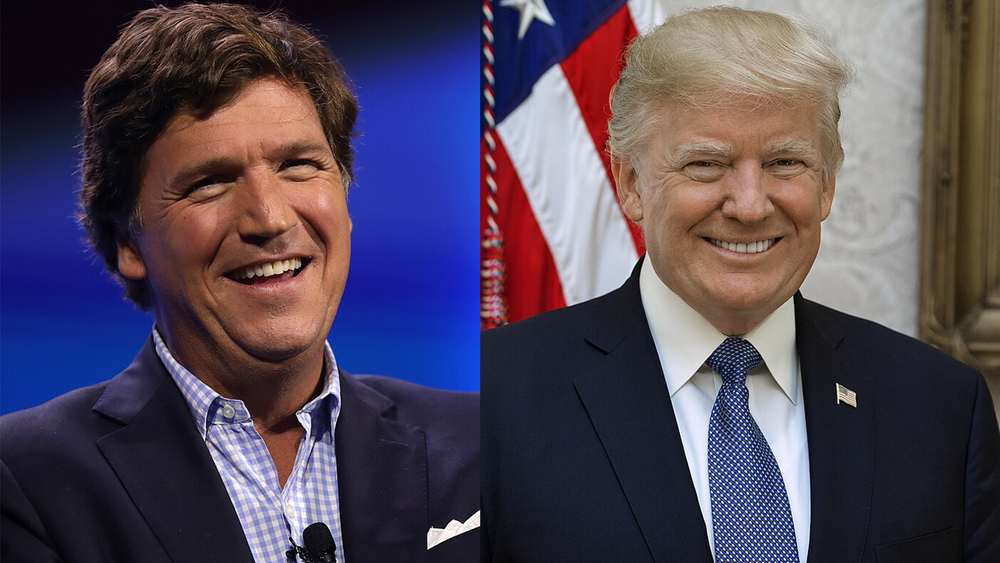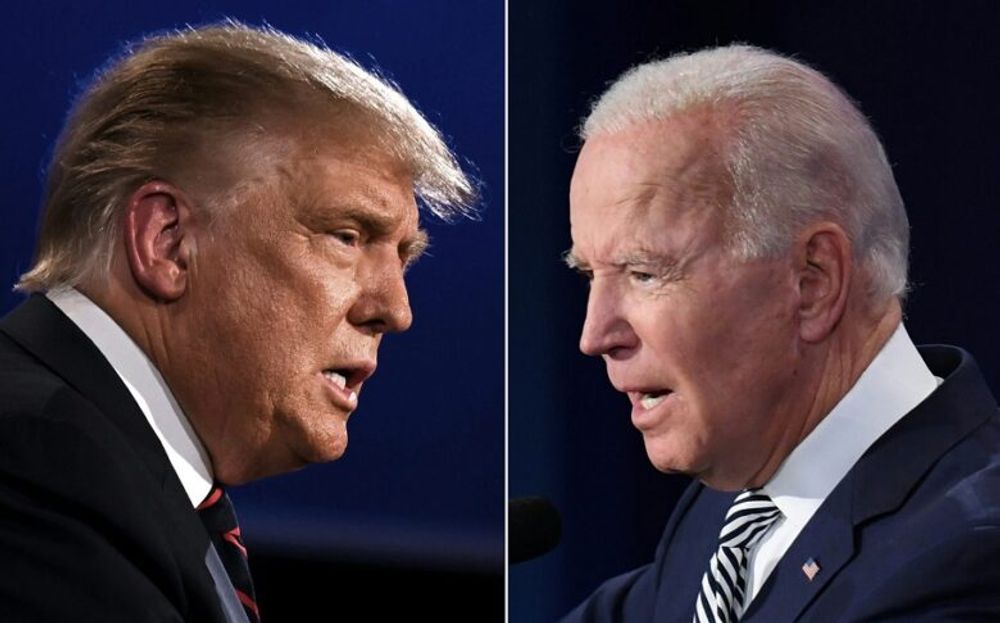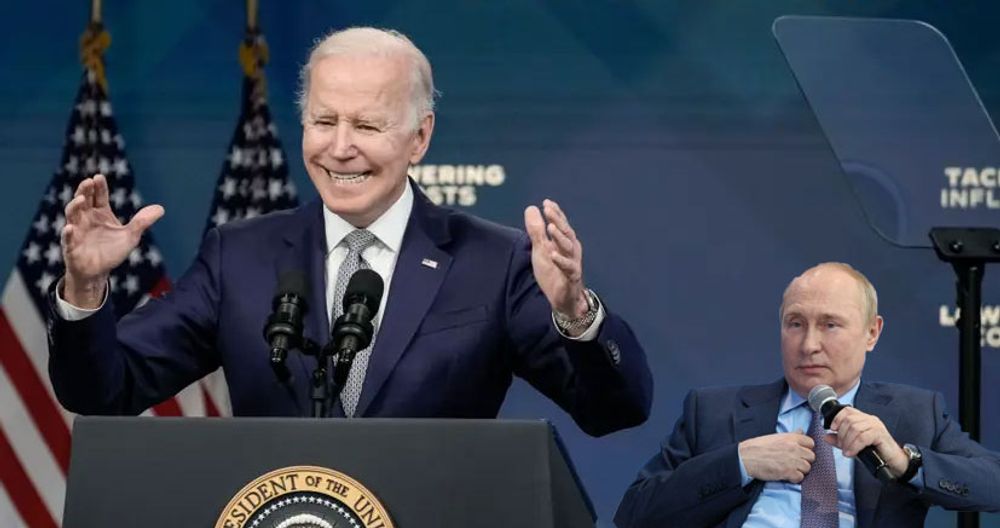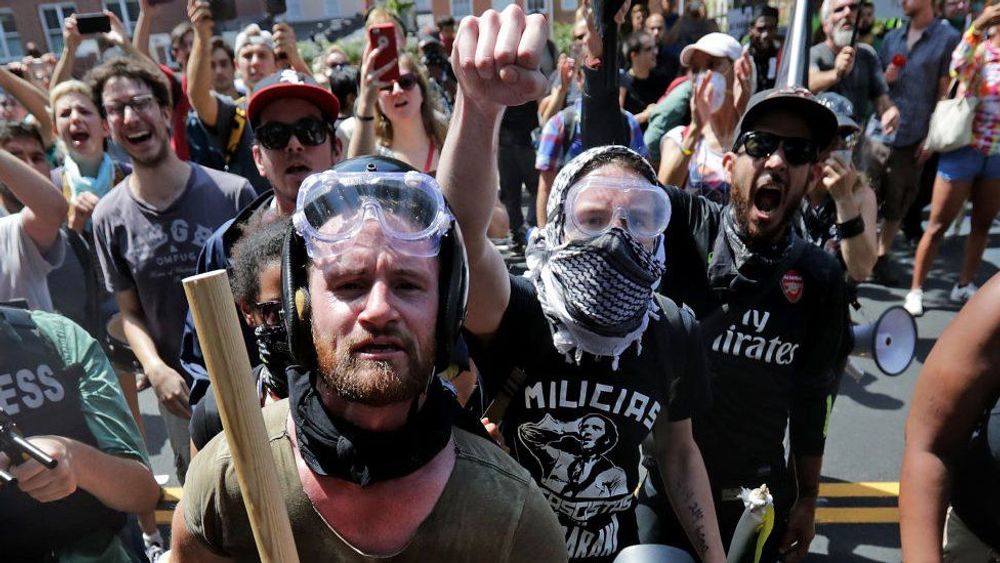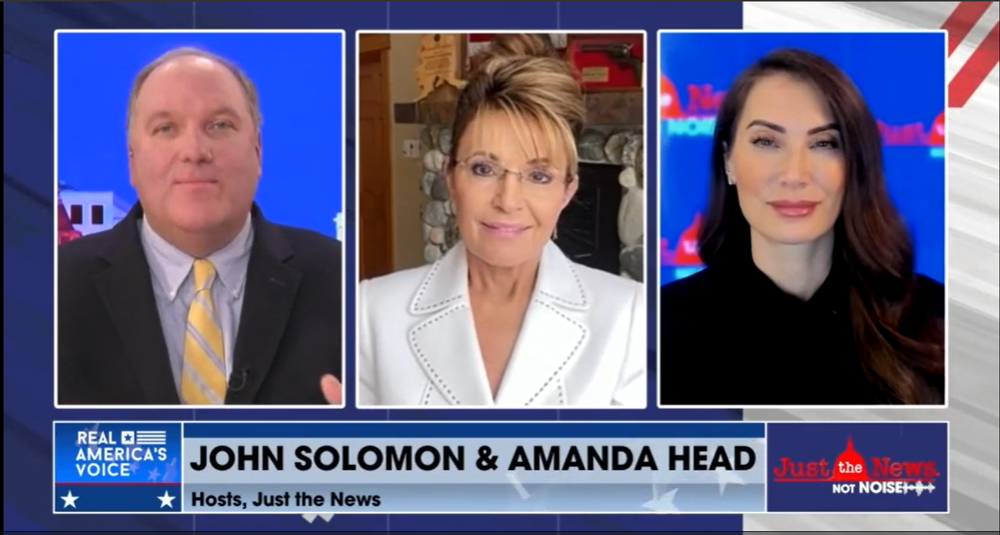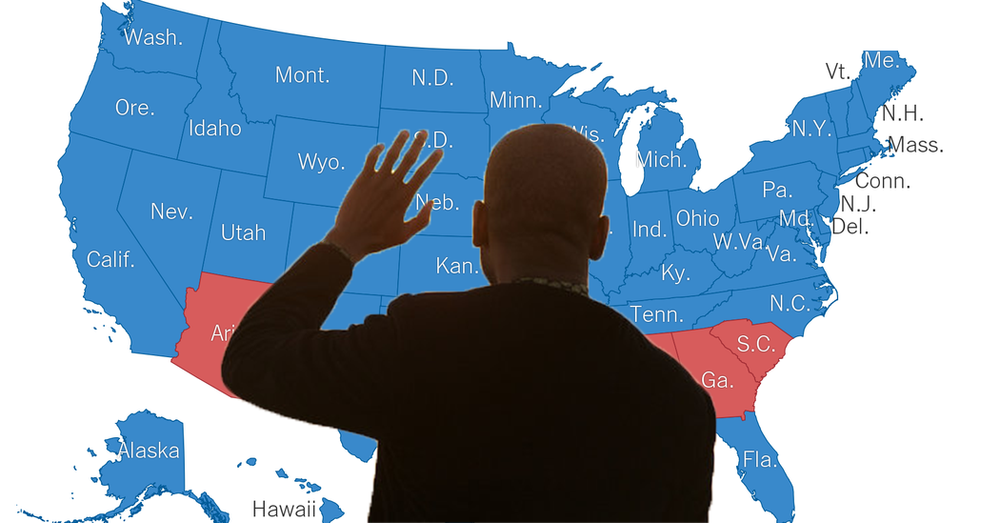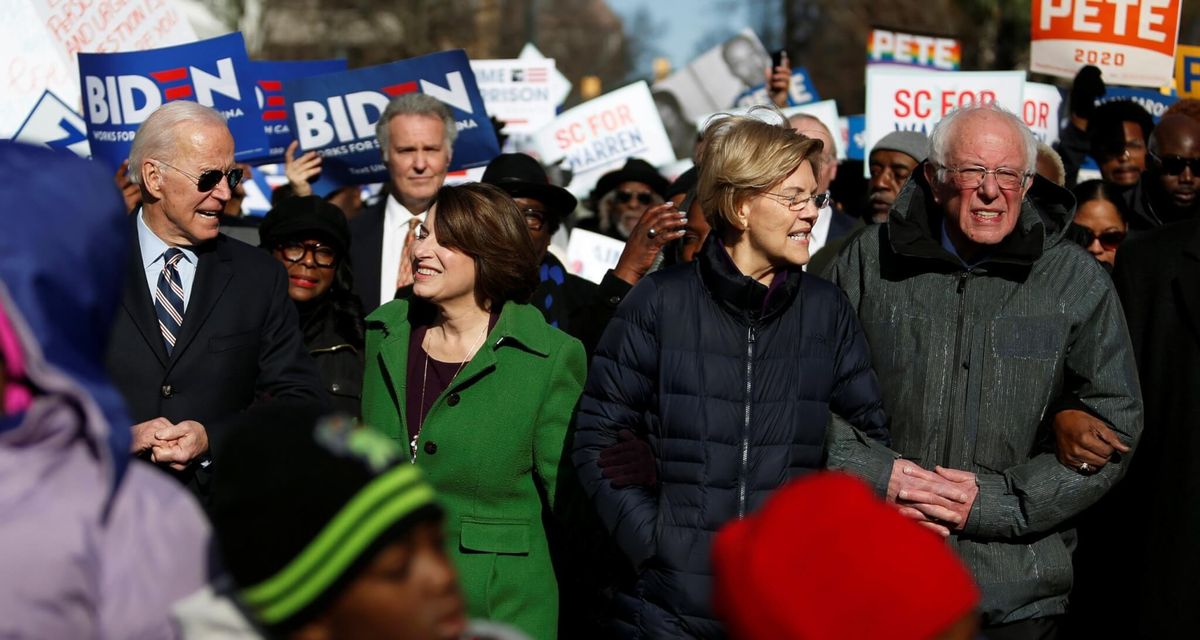
Democratic Presidential Candidates Soon to Face More Diverse Electorates
Democratic presidential challengers turned their focus Wednesday to the next two party nominating contests — in the western state of Nevada and in the southeastern state of South Carolina — in the marathon chase to pick a party nominee to face Republican President Donald Trump in the November national election.
In both states, Democratic candidates will face much more racially diverse electorates than in either of the first nominating contests this month in the predominantly white, rural states of Iowa and New Hampshire.
Latino and African American voters make up a sizable segment of the electorate in Nevada, home to the country's gambling mecca of Las Vegas, while blacks dominate Democratic voter rolls in South Carolina.
Only a small percentage of the delegates to July's Democratic national nominating convention have been picked so far. But Nevada, on February 22, and South Carolina a week later could further winnow the field of candidates and at the same time sharply influence voting on March 3, dubbed Super Tuesday, when 14 states cast ballots, with hundreds of delegates at stake.
Sanders, Buttigieg, Klobuchar
Vermont Senator Bernie Sanders, a self-declared democratic socialist, won Tuesday's New Hampshire party primary in the northeastern U.S., edging out a more moderate Democrat, former South Bend, Indiana, Mayor Pete Buttigieg, the first openly gay Democratic U.S. presidential candidate. Minnesota Senator Amy Klobuchar finished third after a strong debate performance last week and vaulted herself into contention as a more moderate alternative than either Sanders or Massachusetts Senator Elizabeth Warren, once a Harvard law professor, who finished fourth.
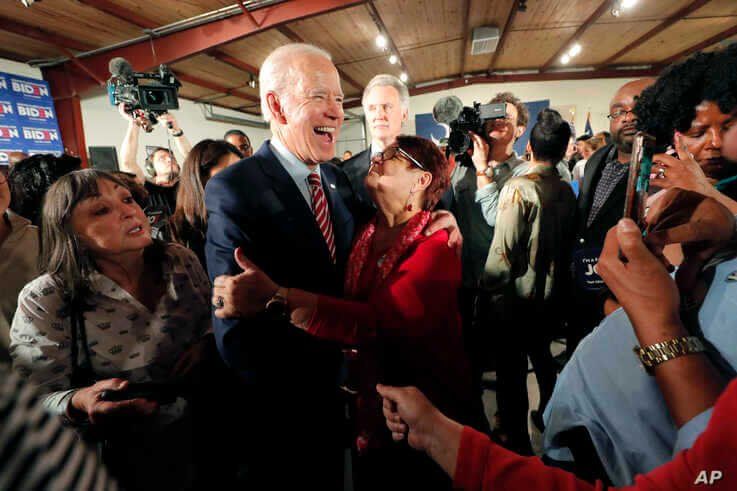
A fifth candidate, former Vice President Joe Biden, struggled for the second straight nominating contest, finishing fifth in New Hampshire after placing fourth in Iowa. For months, Biden has led national polls and cast himself as the Democrat with the best chance to defeat Trump.
But Biden appeared to sense defeat in New Hampshire, leaving the state before polls closed to head to a rally in South Carolina, where he hopes to resuscitate his campaign in what is his third run for the presidency. Surveys in the state have shown Biden ahead, but all the polling was done before Biden finished well back in the pack in both Iowa and New Hampshire.
“It ain’t over, man,” Biden told a crowd in Columbia, South Carolina. “We’re just getting started.”
'Opening bell'
He noted that only two states had voted so far and that few blacks and Latinos had had a say in the outcome in Iowa and New Hampshire.
”Where I come from, that’s the opening bell, not the closing bell,” Biden said. “And the fight to end Donald Trump’s presidency is just beginning.”
Warren, another early favorite in polls who has faltered as actual voting has started, took a similar tack, saying, “Our campaign is built for the long haul.” The Warren campaign said she has hired more than 1,000 workers nationwide, spread across 31 states and Washington, D.C.
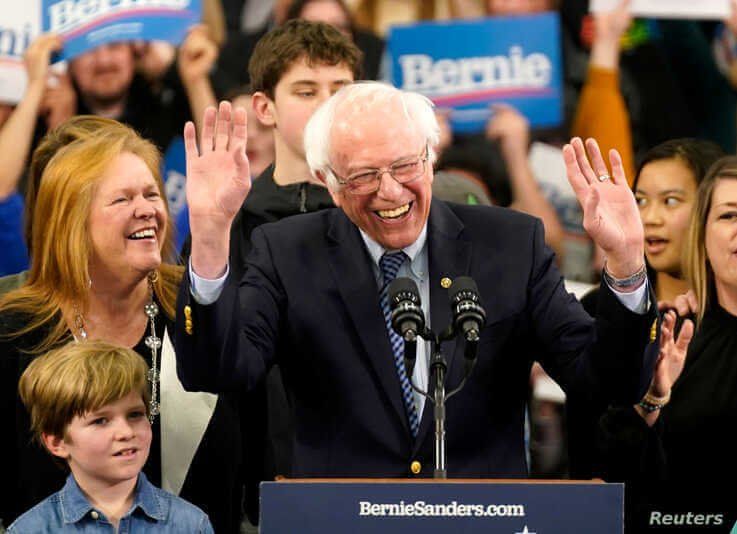
Sanders, at his raucous victory party in New Hampshire, declared, “Let me say tonight that this victory here is the beginning of the end for Donald Trump.”
But he also had a conciliatory message for his Democratic rivals, saying, “No matter who wins [the party presidential nomination], and we certainly hope it’s going to be us, we’re going to unite together. We are going to unite together and defeat the most dangerous president in the modern history of this country.”
Buttigieg, as the mayor of the fourth-largest city in the Midwest state of Indiana, was an unknown name in U.S. national politics a year ago. But after winning in Iowa and finishing second in New Hampshire, Buttigieg basked in the moment.
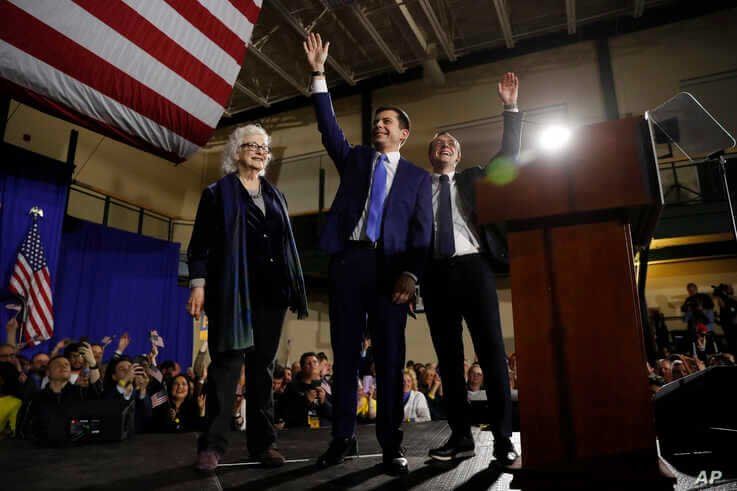
“Thanks to you, a campaign that some said shouldn’t be here at all has shown that we are here to stay,” Buttigieg told his New Hampshire supporters. "So many of you decided that a middle-class mayor, a veteran from the industrial Midwest, was the right choice to take on this president, not in spite of that experience, but because of it.”
Once known at home in Indiana as "Mayor Pete," his New Hampshire adherents cheered as they called him, "President Pete! President Pete!"
Klobuchar told her crowd, "Hello, America, I’m Amy Klobuchar, and I will beat Donald Trump.”
She said, "Because of you, we are taking this campaign to Nevada. We are going to South Carolina. And we are taking this message of unity to the country."
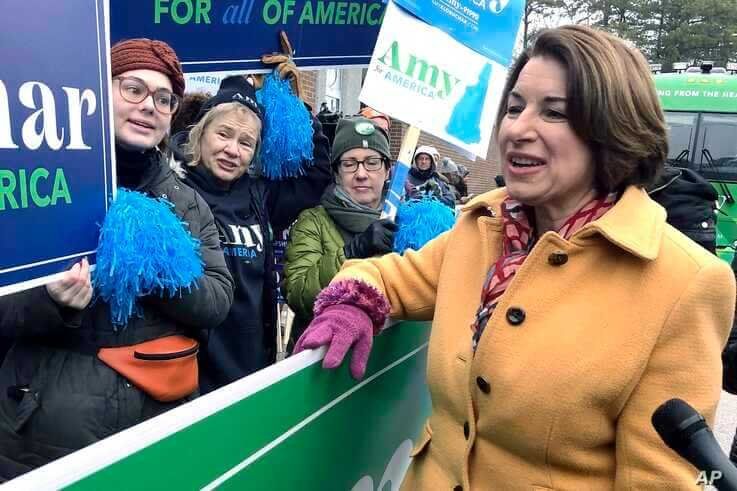
Klobuchar contended, "Donald Trump's worst nightmare is that the people in the middle, the people who have had enough of the name-calling and the mudslinging, have someone to vote for in November."
But Klobuchar could face headwinds in Nevada, South Carolina and the Super Tuesday states, where she trails her opponents in creating a political operation for the coming elections. But she announced a seven-figure TV ad buy in Nevada, her first in the state, and is scheduled to campaign there on Thursday. Her campaign said she raised more than $2.5 million in a couple of hours after the New Hampshire polls closed.
Lurking on the sidelines of the Democratic presidential contests — but not for long — is former New York Mayor Michael Bloomberg, a wealthy business entrepreneur. He has bypassed the February nominating contests but has already spent more than $300 million of his own money on television ads and hiring campaign workers in the Super Tuesday states, where he will be on the ballot for the first time.
Debate appearance
Bloomberg, who at various times has called himself a Republican and an independent and now a Democrat, could also qualify for next Wednesday's debate with Sanders, Buttigieg, Klobuchar, Warren and Biden, all of whom have already met fundraising or polling standards to be on the debate stage.
Several of the Democrats have already accused Bloomberg of trying to buy the nomination with his vast wealth and are sure to confront him directly if he meets polling standards to join the debate.
 Presidential Candidate Bloomberg Endorsed by 3 Black LawmakersNext PostTrump Urges Senate to Reject Curb on His Iran War Powers
Presidential Candidate Bloomberg Endorsed by 3 Black LawmakersNext PostTrump Urges Senate to Reject Curb on His Iran War Powers 
